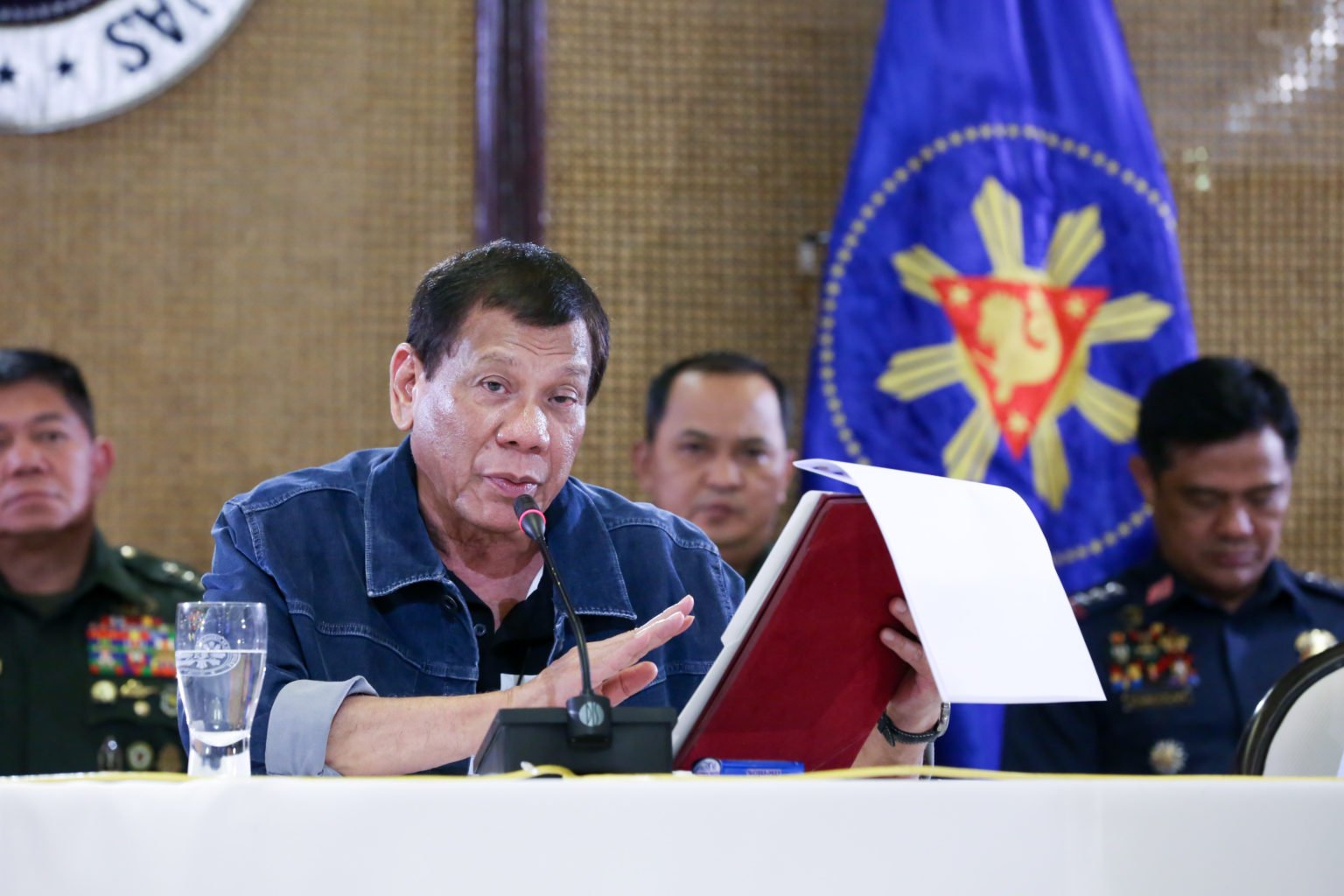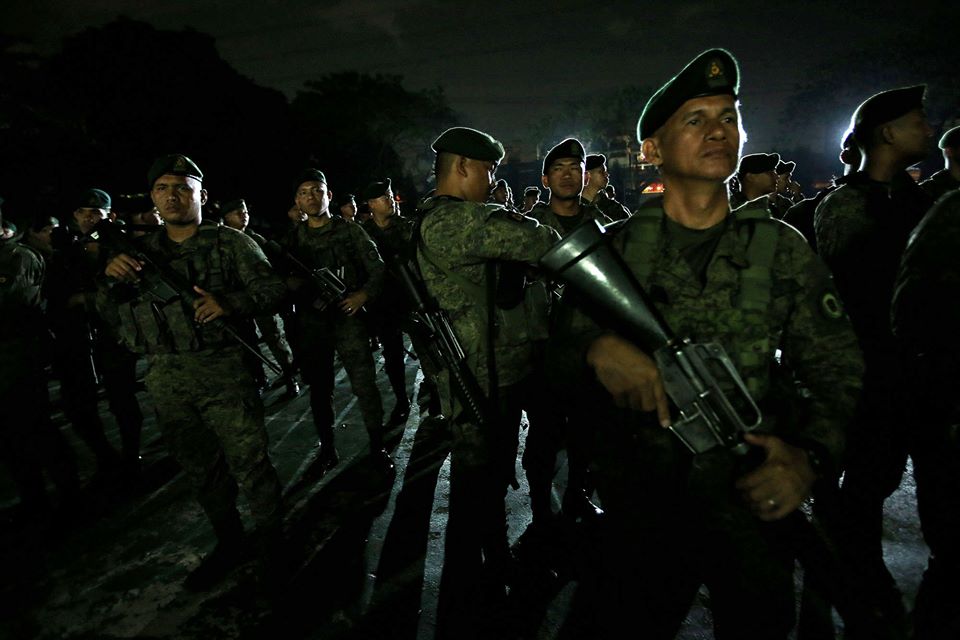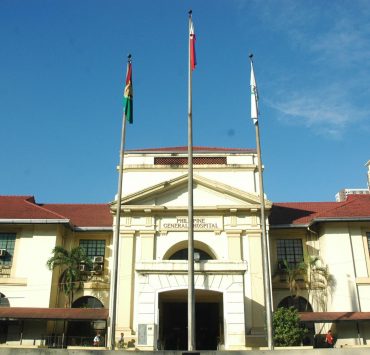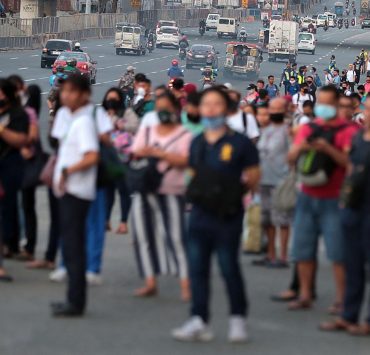It’s all in the news, so there’s no need to reiterate that COVID-19 has indeed been spreading rapidly in the country. The virus is definitely not a matter to be taken lightly with it having already caused more than 6,000 deaths worldwide. The Philippine government has taken the necessary precautions to address this issue, including an implementation of an enhanced community quarantine.
The community quarantine imposed upon Metro Manila means that there has been a suspension of classes, cancelation of mass gatherings, cancelation of flights and travel restrictions. Malls, bars, and restaurants have temporarily closed their operations just as well. All of this done in order to aid in minimizing the threat of the virus and to implement the Department of Health’s (DOH) stringent social distancing measures.
[READ: “Not a lockdown”: Duterte imposes quarantine in Metro Manila]

The virus is highly contagious and can be transmitted through droplets from coughs and sneezes. Touching a surface that has received these droplets and then touching your mouth, nose or ears allows the virus to enter your system. In order to minimize the virus’ easy access, social distancing is a medically recommended measure that increases the physical space between people in order to stop the virus from spreading more rapidly. This means that people must not congregate in big crowds like concerts, weddings, sporting events, and dare I say it, mass transit.
In a country riddled with poverty—informal settlements in every city, outrageously overpopulated prisons, and the masses’ constant need to work for money—it’s evident that some people do not have the privilege of social distancing.
Unsolicited quarantine
The country is populated with people who have to live by the day, buying food to fit three meals, and starting again tomorrow. They will continue to work because they have always been facing a threat to their lives even before the virus spread: poverty. Our jeepney drivers, construction workers, waiters, janitors, security guards and other blue-collar jobs have to keep on working in order to earn money for their families, because if they stop, it could mean empty plates and hungry stomachs eventually.
So they continue to brave the streets. They cannot afford to lose a month’s salary. The bus and jeepney drivers continue their jobs of picking people up and people still flock towards them, still pushing and squeezing against each other in order to get a spot inside the vehicle. On the first day of the community quarantine, many people still stood at the streets of EDSA, face masks on, to engage in mass transit.
During Duterte’s second press conference last night, Mar. 17, an enhanced community quarantine was implemented wherein transportation lines would be suspended immediately. However, businesses such as groceries, drugstores, and banks will continue. For them, going to work may be more difficult not only facing the virus, but also having to steel themselves for every checkpoint or police officer that comes their way. For others, it may mean that there will be no salary for a month.
https://www.facebook.com/photo.php?fbid=10217980588321365&set=a.2688571168566&type=3
[READ: Duterte places Luzon on “enhanced community quarantine”: Here’s what it really means]
After the apparent difficulty with social distancing that the Philippines proved on its first day of the quarantine, it became somewhat of a wake-up call for the government to help the masses. Hopefully, the government follows through in protecting and supplying every one of its citizens and adheres to the much anticipated and recently published budget allocated to fighting the virus. As much as social distancing is needed, guidance and aid for the poor are also vital.
Solution breaks
When President Duterte addressed the public last Mar. 12, he emphasized the role of the military in combating the virus. While the police officers do have the means to refrain people from going out and spreading the virus, the government’s lack of prioritization for health care is made prominent. What is really needed are ways to help treat the patients of the virus: testing centers for early detection, medical personnel at the ready on checkpoints, quarantine tents, food, water, vitamins, and other supplies that can help boost one’s immunity. Not a line of military soldiers, unequipped with even masks or alcohol, standing arms ready against an intangible virus.

In the press conference, Duterte states that the people who will show signs of disobedience to the military will be sent straight to the precincts. This is another issue, as our prison cells right now are filled to the brim with people to a point that they have to sleep next to each other with little to no space between them. It’s practically a breeding ground for the virus if it’s able to enter the space, and adding more people will only hamper social distancing. The best place for quarantine is in houses or rooms, certainly not in jail cells.
Before the coronavirus, there was poverty which has killed and continues to kill people daily in the country.
The people who are living in informal settlements and those who are out on the street are more susceptible to the virus. Those who have to travel and work everyday are also targets and people who come in close contact with them can also become victims of the virus. However, it is never right to blame the masses when an unjust system is what has led them to this need to continue working.
Before the coronavirus, there was poverty which has killed and continues to kill people daily in the country. A study showed that in 2017, more than 85 children die each day out of malnourishment. In 2019, Al Jazeera published a video showing that one in five people live in extreme poverty, getting by on only P100 or less a day. Even if the whole city is placed on a strict lockdown, with no businesses and service operations allowed to continue, people could be safe from the virus—but not from poverty.
The government’s hands
If only corruption was curbed, if six-digit salaries could be lessened and allocated to helping the poor, if only our taxes were going to the right pockets then we could have better developments, better solutions for times like this. If the poverty threshold could have been lessened, more people will be able to fend for themselves for a month and not have to suffer from poverty, thus social distancing would be more achievable. However, we are stuck facing reality.
At times like this, it’s the Filipino people we can trust. We have seen acts of heroism during this outbreak, most especially from the medical practitioners who stand on the frontlines of testing and treating the patients. Restaurants have been giving out meals and citizens are donating cash and kind to healthcare facilities. Even the major private companies such as Meralco, Globe, Smart and PLDT have extended the deadline of dues payment for 30 days to give reprieve to citizens. The Filipinos are helping each other to the best that they can as we have been accustomed to do.
The virus may be teaching us a lesson that a fair and equal society where funds are allocated properly without the greed of the corrupt will help all people in the end
Now more than ever do we need our government to show their care and competency for the citizens. The virus may be teaching us a lesson that a fair and equal society where funds are allocated properly without the greed of the corrupt will help all people in the end. This is a wake-up call for us to strengthen our ties as people, help each other and reach out to government officials to help the people in fighting the virus, and when all this is over, it must be time to focus on fixing the issues of the poor.
Header photo courtesy of Inquirer.net
Get more stories like this by subscribing to our weekly newsletter here.
Read more:
COVID-19 is now a pandemic. What does this mean?
Is a Metro Manila lockdown the answer to minimizing COVID-19 transmissions?
Despite potential losses due to COVID-19, these QC restaurants are helping feed medical frontliners
Writer: THEA TORRES




